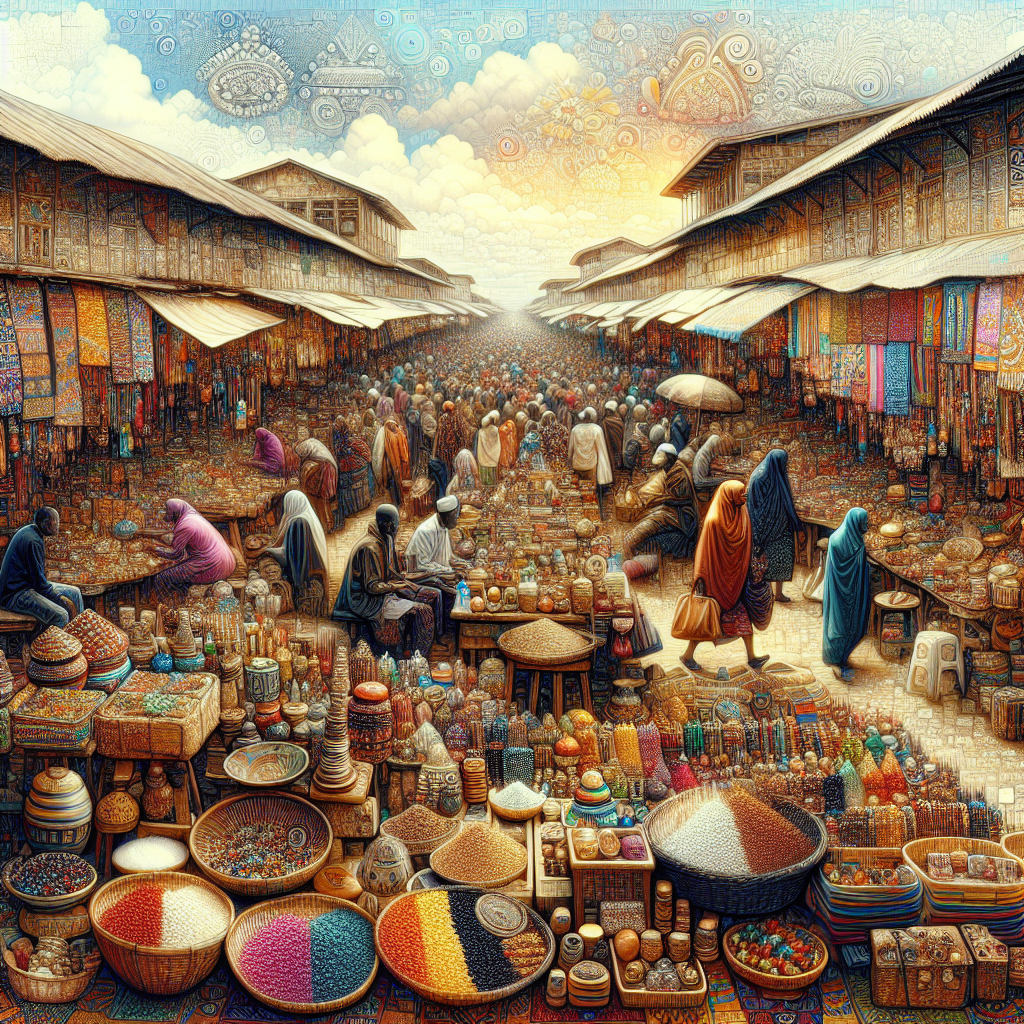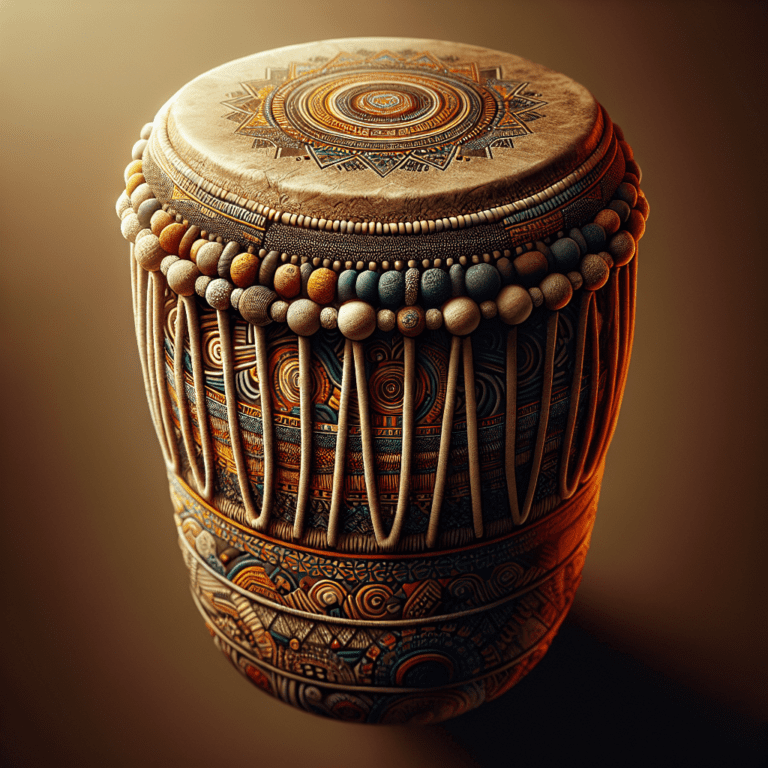Can You Visit Traditional Markets And Bazaars In Kenya?
Are you curious about exploring traditional markets and bazaars in Kenya? The vibrant sights, sounds, and scents of these lively marketplaces offer a unique experience for travelers seeking to immerse themselves in the local culture. From the bustling streets of Nairobi to the remote corners of Maasai Mara, Kenya’s traditional markets and bazaars offer a glimpse into the country’s rich heritage, where you can browse through a wide array of handicrafts, handmade jewelry, colorful fabrics, and exotic spices. Whether you are a seasoned traveler or a first-time visitor, embarking on a journey to these traditional markets and bazaars in Kenya promises to be a delightful and enriching adventure.
Introduction
When visiting Kenya, one of the best ways to immerse yourself in the local culture and experience the vibrant atmosphere is by exploring traditional markets and bazaars. Here, you can witness the hustle and bustle of daily life, interact with friendly vendors, savor authentic flavors of Kenyan cuisine, and support local artisans. In this comprehensive guide, we will take you on a virtual tour of the traditional markets in Kenya, from the bustling city of Nairobi to the coastal town of Mombasa and beyond. So, get ready to embark on a colorful journey of sights, sounds, and tastes.
Exploring the Vibrant Traditional Markets of Kenya
Understanding the Importance of Markets in Kenyan Culture
Markets hold a significant place in Kenyan culture. These bustling spaces reflect the diversity and richness of the country’s traditions and heritage. For centuries, markets have served as a meeting point for communities, allowing people to exchange goods, knowledge, and stories. They are not just places to buy and sell, but also forums for social interaction and cultural exchange.
Types of Traditional Markets and Bazaars in Kenya
Kenya boasts a diverse range of traditional markets and bazaars. From sprawling open-air markets to smaller artisanal craft fairs, there is something for everyone. The most common types of markets include:
-
Open-air markets: These are the most traditional and vibrant markets found in Kenya. They are usually bustling with activity, with vendors selling everything from fresh produce and spices to clothing and household items.
-
Maasai markets: These markets are unique to the Maasai community and offer a glimpse into their traditional way of life. Here, you can find intricately beaded jewelry, colorful fabrics, and traditional clothing.
-
Bazaars: Found in larger cities like Nairobi and Mombasa, bazaars combine the vibrant atmosphere of traditional markets with a modern twist. These bustling marketplaces offer a wide range of goods, from clothing and accessories to local crafts and souvenirs.
Popular Traditional Markets in Nairobi
Nairobi, the capital city of Kenya, is home to several popular traditional markets. One such market is the Maasai Market, a vibrant hub of activity where visitors can find unique Maasai crafts, traditional clothing, and handcrafted jewelry. Another famous market is the City Market, located in the heart of Nairobi. Here, you can explore a wide variety of stalls selling everything from fresh produce to traditional spices and artwork.
Must-Visit Bazaars in Mombasa
Mombasa, the coastal town of Kenya, is known for its vibrant bazaars. One of the must-visit bazaars here is the Mombasa Old Town Market. This historic market offers an authentic experience, with narrow streets lined with vendors selling spices, fabrics, and local delicacies. Another popular market is the Mombasa Kongowea Market, known for its bustling atmosphere and a wide range of goods, including fresh seafood, clothing, and household items.
Exploring the Unique Maasai Markets
If you want to experience the vibrant Maasai culture, a visit to the Maasai markets is a must. These markets are known for their colorful displays of beaded jewelry, intricately woven fabrics, and traditional clothing. The Maasai markets are a feast for the senses, filled with vibrant colors, rhythmic music, and the iconic red robes adorned by the Maasai people. It is a unique opportunity to learn about their customs, traditions, and way of life.
Experience the Lively Atmosphere of Kisumu’s Markets
Kisumu, the third-largest city in Kenya, is famous for its lively markets. The most well-known market in Kisumu is the Kibuye Market, where you can find an abundance of fresh produce, traditional herbs, and spices. The market is a vibrant hub of activity, with bustling vendors and a delightful mix of aromas. Visiting Kisumu’s markets offers a unique opportunity to immerse yourself in the local culture and engage with friendly locals.
Discovering Hidden Gems in Other Kenyan Cities
While Nairobi, Mombasa, and Kisumu have some of the most famous markets in Kenya, there are hidden gems to be discovered in other cities as well. For example, in Nakuru, you can explore the Nakuru Open Air Market, known for its fresh produce and vibrant atmosphere. In Eldoret, the Eldoret Town Market offers a wide range of goods, from traditional crafts to clothing and household items. Each city has its own unique markets, waiting to be explored.
Tips for Navigating Traditional Markets in Kenya
When visiting traditional markets in Kenya, here are some tips to enhance your experience:
-
Dress comfortably: Wear light and breathable clothing, as markets can get crowded and hot.
-
Bargain respectfully: Bargaining is a common practice in Kenyan markets. Remember to negotiate respectfully and enjoy the process of haggling.
-
Try the local delicacies: Traditional markets are the perfect place to sample authentic Kenyan cuisine. Don’t miss out on trying street food and local delicacies offered by the vendors.
-
Engage with the locals: The heart and soul of traditional markets lie in their people. Take the time to interact with the vendors, learn about their crafts, and embrace the local culture.
Savoring the Authentic Flavors of Kenyan Cuisine at Local Markets
Locally Sourced Ingredients at Kenyan Markets
Kenyan markets offer an incredible variety of locally sourced ingredients that are the backbone of Kenyan cuisine. From vibrant fruits and vegetables to flavorful herbs and spices, you can find an abundance of fresh and aromatic ingredients to create delicious dishes.
Traditional Foods and Delicacies to Try
Kenyan cuisine is known for its diverse flavors and unique combinations. Traditional foods such as ugali (a staple maize-based dish), sukuma wiki (collard greens), nyama choma (grilled meat), and samosas (deep-fried pastries filled with meat or vegetables) are must-try dishes when visiting the local markets. These dishes showcase the rich flavors and culinary traditions of Kenya.
Sampling Street Food at Kenyan Markets
One of the highlights of visiting traditional markets in Kenya is indulging in the mouthwatering street food. From smoky grilled meats to steaming hot plates of pilau (spiced rice), the variety and flavors of street food will leave you craving for more. Make sure to try popular street food items like mandazi (sweet fried bread), mahamri (coconut bread), and chapati (flaky flatbread) for a true taste of Kenyan street cuisine.
Learn to Cook Kenyan Dishes with Local Vendors
If you’re a food enthusiast, some vendors in Kenyan markets offer cooking classes where you can learn to prepare traditional Kenyan dishes. This unique opportunity allows you to not only savor the flavors of Kenyan cuisine but also gain insights into the cooking techniques and cultural significance of the dishes. It’s a hands-on experience that will deepen your appreciation for the local flavors.
Supporting Local Artisans and Craftspeople
Traditional Crafts and Artwork in Kenyan Markets
Traditional markets in Kenya are a treasure trove of unique crafts and artwork, showcasing the immense talent and creativity of local artisans. From intricately beaded jewelry and hand-carved wooden sculptures to vibrant fabrics and colorful paintings, these markets offer an array of traditional crafts that represent the diverse cultures and traditions of the country.
Souvenirs and Unique Gifts to Purchase
When exploring Kenyan markets, don’t forget to pick up some souvenirs and unique gifts to take back home. Whether it’s a beaded necklace, a beautifully woven basket, or a handcrafted wooden mask, these traditional crafts make for meaningful mementos and gifts for loved ones. By purchasing from local artisans, you are not only supporting their livelihoods but also promoting the preservation of traditional craftsmanship.
Promoting Sustainable Tourism through Artisanal Products
By supporting local artisans and purchasing their artisanal products, you play a crucial role in promoting sustainable tourism. Your purchase directly contributes to the economic empowerment of local communities and helps preserve traditional craftsmanship and cultural heritage. Additionally, buying artisanal products reduces the environmental impact associated with mass-produced souvenirs, making it a more sustainable choice.
The Importance of Responsible Tourism in Kenyan Markets
Preserving Cultural Heritage and Supporting Local Communities
Responsible tourism plays a vital role in preserving Kenya’s cultural heritage and supporting local communities. When visiting traditional markets, it is essential to respect the cultural practices, customs, and traditions of the local people. By adopting a responsible and respectful attitude, you contribute to the preservation and continuation of these cultural treasures for future generations.
Benefits and Challenges of Responsible Tourism in Markets
Responsible tourism in markets brings various benefits to both visitors and the local community. Visitors gain a deeper understanding of the local culture, while the local community benefits economically from the tourism industry. However, there are also challenges to overcome, such as maintaining a balance between commercialization and preserving the authenticity of traditional markets. By being mindful and respectful, visitors can help overcome these challenges and ensure a positive impact on the local community.
Tips for Responsible Shopping and Interaction
To practice responsible tourism in Kenyan markets, here are some tips to keep in mind:
-
Respect local customs and traditions: Observe and respect the cultural practices of the local communities you encounter in the markets.
-
Engage in meaningful interactions: Take the time to interact with the vendors, ask them about their crafts, and show genuine interest in their work.
-
Support local businesses: Prioritize purchasing goods from local artisans and vendors, as this directly supports the local economy.
-
Avoid unsustainable products: Be aware of the environmental impact of certain goods and avoid purchasing products made from endangered species or contributing to deforestation.
Conclusion
Visiting traditional markets and bazaars in Kenya offers a unique opportunity to immerse yourself in the vibrant culture, savor authentic flavors, and support local communities. From the bustling streets of Nairobi to the coastal markets of Mombasa, and the hidden gems in other Kenyan cities, the diversity and richness of the markets are as colorful as the country itself. By practicing responsible tourism and engaging with the local people, you can create meaningful connections and leave a positive impact on the communities you visit. So, head out to the traditional markets of Kenya and embark on an unforgettable journey of sights, sounds, flavors, and craftsmanship.





